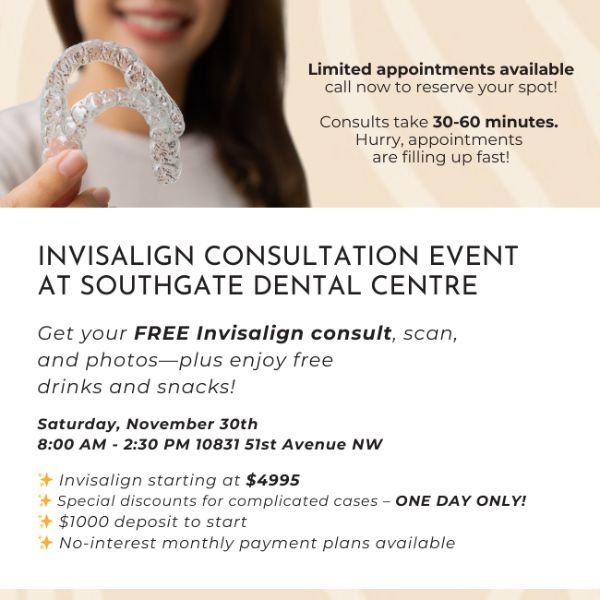Cracked teeth are more common than you might think. They can happen whenever you bite or chew on something hard, experience any trauma to the face, and over time, grinding can cause cracks. These cracks can range from minor surface lines to severe fractures that require immediate attention.
Fortunately, your dentist can help—but how do you tell if you have a cracked tooth? What does it feel like?
A cracked tooth can cause sharp pain of short duration, sensitivity, and discomfort. The symptoms can vary depending on the severity and location of the damage. Sometimes, they’re extremely subtle, making it difficult to notice the signs early.
How to Recognize a Cracked Tooth
Identifying a cracked tooth can be challenging. While they sometimes cause pain and discomfort, this isn’t always the case. Usually, the common signs of a cracked or chipped tooth include:
- Pain when chewing or biting
- Sensitivity to hot, cold, or sweet foods
- Swollen gums around the affected tooth
- Intermittent pain that comes and goes
- Visible cracks or lines on the tooth surface
If you suspect you have a cracked tooth, don’t leave it unaddressed. These are not temporary problems—they can cause much worse problems in the future.
Do You Have to Remove a Cracked Tooth?
A cracked tooth creates a small gap in the enamel, the protective shield of your teeth. When there’s a small space here, bacteria can enter. Then, they thrive in this environment.
Cracked teeth are perfect homes for all kinds of bacteria. They can cause infections and inflammation in both the pulp and gums. This can lead to abscesses or serious infections that compromise the integrity of the tooth.
However, it’s not just about the cracked tooth. These bacteria can spread to the gums and surrounding areas. In some situations, they can even enter the bloodstream and cause further health issues.
This is why it’s so important to seek professional help if you think you have a cracked tooth. Sometimes, a crack might be shallow and only need minor repairs. But if the tooth is damaged to the point where it can’t be restored, you may need to have the tooth removed. This occurs when the fracture goes below the gum line or between the roots.
How Your Dentist Can Treat Cracked Teeth
If you notice the symptoms of a cracked tooth, your first step should be to visit your dentist. They will examine the area, as x-rays won’t show all cracks, especially small ones, and work with you to plan out the next steps. Typically, there are 4 treatment options recommended:
- Fillings
- Crowns
- Root canal therapy
- Extraction
The specific approach varies depending on the location of the crack. The damage itself also plays an important role.
Fillings
Fillings are often used for minor cracks. This treatment focuses on cleaning the affected area, filling the gaps in the enamel, and reinforcing the tooth’s structure.
This method is extremely quick. It involves very little discomfort, and the results are long-lasting. You can expect a filling to last up to 10 years or more depending on how well you care for it.
Crowns
Crowns are a popular choice for restorative dentistry. These are caps that cover the entire surface of a tooth. They restore the look, feel, and function of your natural teeth while preventing further damage.
Crowns can be made from different materials, including ceramic, metal, or a combination of these. They are custom-made to match the shape and colour of your natural teeth. This option is ideal for more severe cracks or damage that affects larger areas of the tooth.
Dental crowns last for up to 10 years or more. If they’re damaged at any point, your dentist can remove the existing crown and replace it. This makes them an extremely convenient option for treating a cracked tooth.

Root Canal Therapy
Root canal therapy is required when the crack enters the pulp chamber. The pulp chamber must be removed as the crack has allowed bacteria to enter and start infection. Once infection has started in the pulp chamber, there is no medical cure other than root canal therapy.
Once root canal therapy is completed, a crown is required to restore and strengthen the tooth.
Extraction
In some situations, a cracked tooth may be beyond repair. If the damage is severe and extends below the gum line, your dentist may recommend extraction. This involves completely removing the damaged tooth and replacing it with an implant or bridge.
While this may seem like a drastic measure, it’s necessary to prevent further progress of an infection and preserve overall oral health. A tooth extraction stops infections and bacteria from spreading to other areas.
Tips for Preventing Cracked Teeth
Preventing cracked teeth is the easiest way to avoid the problem. It involves adopting healthy habits and being aware of your risks. Try to:
- Wear a mouthguard during sports to protect against impact.
- Avoid chewing on hard foods like ice and unpopped popcorn.
- Maintain regular oral hygiene to strengthen teeth.
- Never use your teeth as tools in any situation.
These habits are a simple way to keep your teeth safe and healthy. You should also be visiting your dentist often for regular checkups. This helps you maintain a proactive approach to your oral care.
Let Our Team Keep Your Smile Strong
At Southgate Dental Centre, we understand the discomfort a cracked tooth can bring. You deserve a healthy, strong smile, and our team is here to help. If you’re dealing with a cracked tooth or any other dental issue, come visit us to discuss solutions. We’re here to give your smile the attention it deserves, so request an appointment with us today.



